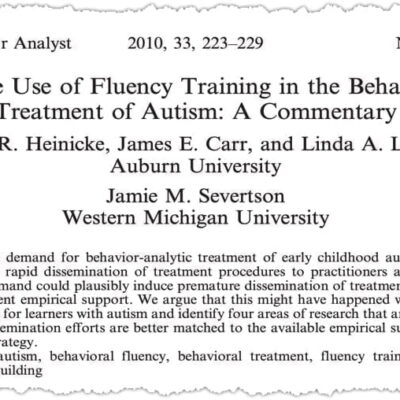Instructional Design for Autistic Learners: Moving Beyond Discrete Trial Instruction
Trina Spencer
Behavior analysts often rely heavily on discrete trial instruction (DTI) despite its limitations for teaching complex skills. Direct Instruction (DI) is proposed as a more effective method for developing generative skills, emphasizing intentional programming for generativity and efficiency in learning. This presentation from the 2023 Michigan Autism Conference illustrates DI principles with examples from teaching autoclitic frames to autistic learners, showcasing how DI can foster skillful learning in new contexts.
This product has been discontinued.
You may also like…
-
Interactive Video

1 BCBA CEU
Functional Analysis for Real-World Impact: An Interview with Brian Iwata
Brian Iwata4.50 out of 5(2)$9.99 Add to Cart Quick View -
Interactive Video

1.5 BCBA CEUs
B.F. Skinner on Education
B.F. Skinner4.94 out of 5(32)$14.99 Add to Cart Quick View -
Article Quiz

0.5 BCBA CEU
On the Use of Fluency Training in the Behavioral Treatment of Autism: A Commentary
Megan R. Heinicke, James E. Carr, Linda A. LeBlanc, & Jamie M. Severtson4.11 out of 5(18)$4.99 Add to Cart Quick View

